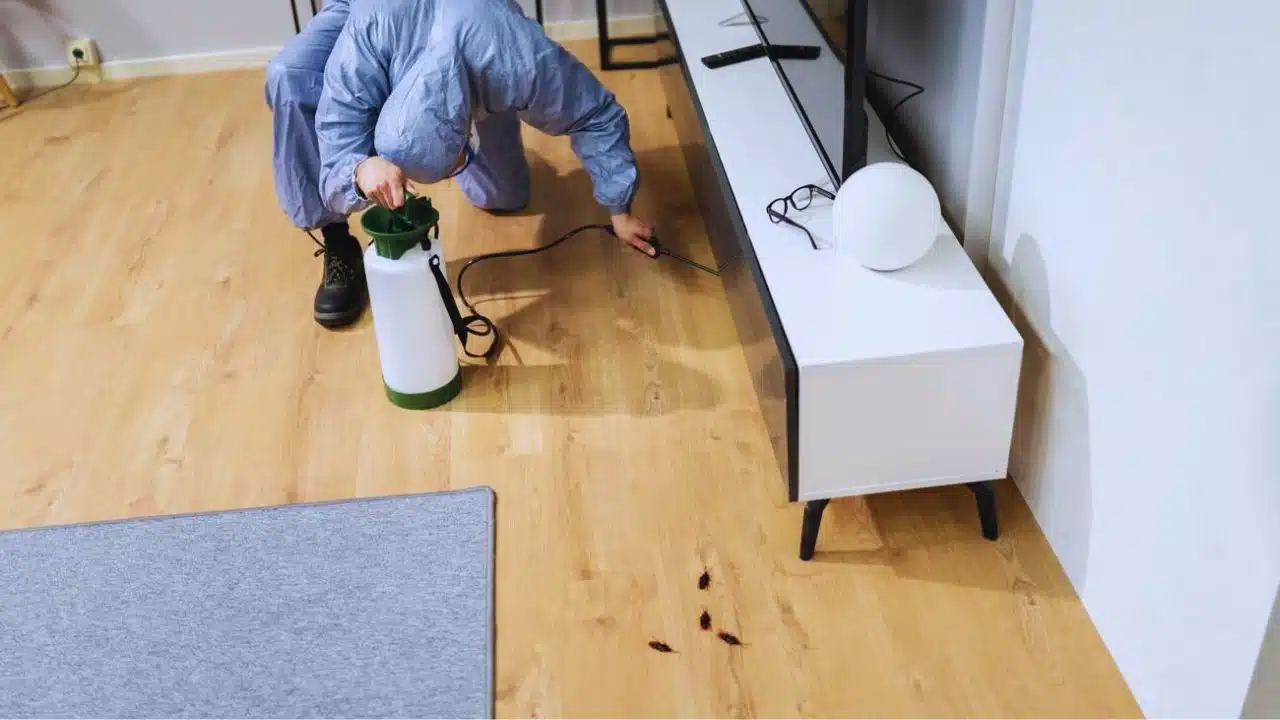As you prepare for summer house parties, consider who you want to invite—and who you don’t. Mosquitoes, ants, wasps, and other pesky insects are not on the guest list.
If the thought of mosquitoes biting or raccoons rummaging through your garbage makes you uneasy, read on. We’ve gathered expert tips to help you keep your home pest-free all summer.
1. Dehydrate Insects
While keeping your guests hydrated is essential, ensuring mosquitoes stay thirsty is key. “The most impactful thing that can be done is removing water collection where mosquitoes can breed,” says David Price of Mosquito Joe. Mosquitoes lay their eggs in standing water, so eliminating stagnant water around your home is crucial.
Inspect your yard for containers that might collect water, such as flowerpots, birdbaths, and buckets, and empty them regularly.
Price also suggests timing your watering and sprinkler systems to give plants enough water to stay healthy while ensuring it’s fully absorbed into the soil. If you can’t eliminate a water collection, use Mosquito Dunks, available at hardware stores, to destroy mosquito larvae safely.
2. Utilize Fans Against Mosquitoes
Mosquitoes may be annoying, but they’re not strong fliers. “Utilizing a fan is very effective as mosquitoes are not very good fliers and avoid the moving air,” explains Price.
Place fans around your outdoor seating areas to create a breeze that keeps mosquitoes at bay. This trick not only deters mosquitoes but also helps circulate the air, making your guests more comfortable on hot summer days.
3. Repel Insects with Essential Oils
Essential oils are not just for aromatherapy; they can also be potent insect repellents. Instead of relying on a single type of oil, Price recommends trying different combinations to repel various pests.
Create a DIY insect repellent spray by mixing essential oils with a carrier oil like coconut oil or an astringent like witch hazel. Here are some effective combinations to try:
- Coconut oil and peppermint
- Rosemary oil and apple cider vinegar
- Eucalyptus oil and witch hazel
Other essential oils that repel insects include eucalyptus, lavender, cinnamon, thyme, tea tree, rosemary, chamomile, peppermint, cedarwood, and citronella.
Mix a few drops with water in a spray bottle and spritz around your outdoor areas to keep insects at bay. Price advises against relying solely on citronella candles, as they often contain low amounts of citronella oil and may not be very effective.
4. Maintain a Tidy Garden
A well-maintained garden is both beautiful and functional in keeping pests at bay. While garter snakes can be beneficial by eating other pests, if you prefer to avoid all snakes, keeping your garden tidy is essential. “Snakes look for places to hide, so keeping all grass mowed, shrubs trimmed, and brush picked up will help keep homeowners safe,” says Pearson.
Regularly mow your lawn, trim bushes and shrubs, and remove piles of leaves or debris where pests might hide. This practice not only reduces hiding spots for snakes but also deters other pests like rodents and insects.
When gardening, always be cautious when reaching into shrubs, bushes, and plants to avoid any lurking pests.
5. Divert Birds with Deterrents
Birdwatching can be relaxing, but dealing with unwanted nests is a hassle. “The best advice on diverting birds is to make the property undesirable,” Pearson suggests.
Install deterrents like wind chimes or reflective tape in areas conducive to nesting, such as covered porches and ledges. These deterrents create movement and noise that discourage birds from settling in those areas.
Consider installing birdhouses in parts of your yard where you don’t mind having birds. This can provide them with a suitable nesting spot away from your home.
Avoid placing bird feeders close to your house, as they can attract not only birds but also mice, rats, raccoons, squirrels, chipmunks, and other wildlife.
6. Seal Cracks to Prevent Bats
Bats can become uninvited guests if they find a way into your home during mating season, which occurs in spring and summer. “The best way to prevent bats from getting in your home in the first place is to make sure all accessible areas of the home are closed off,” Pearson advises.
Bats can squeeze through tiny spaces, so inspect your home’s exterior thoroughly for gaps around windows, doors, vents, and rooflines. Seal these openings with caulk or weatherstripping and install screens over vents and chimneys to prevent bats from entering.
Annual inspections are crucial to ensure your home hasn’t sustained any damage that could create entry points for bats or other pests. Regular maintenance and timely repairs can help keep your home pest-free.
7. Secure Trash to Deter Raccoons
Cleaning up after a backyard meal or party is one thing, but ensuring that the garbage collected stays secure is another. Pearson recommends removing the trash from your property as soon as possible to keep raccoons, mice, and other rodents away from your leftovers.
If it’s not yet garbage removal day, store trash cans in a secure area that animals can’t access. Make sure the lids are tightly sealed. “The odor of food draws in animals, so keeping garbage sealed in tight containers is also recommended,” Pearson says.
Regularly clean your garbage cans to reduce odors that might attract pests. This practice not only prevents raccoons from getting into your trash but also deters other pests like insects and rodents.
Summary
Summer is a time for fun and relaxation, but pests can quickly ruin your outdoor enjoyment. By following these expert-approved tips, you can keep your home and yard free of unwanted critters all season. From eliminating standing water to using essential oils, these strategies are easy to implement and highly effective.
Keep your garden tidy, secure your trash, and take preventive measures to ensure your summer parties remain pest-free. Remember, a little prevention goes a long way in maintaining a comfortable and enjoyable environment for you and your guests.





































